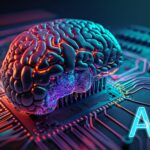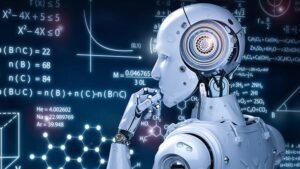Artificial Intelligence (AI) is not a new concept, but it’s revolutionizing our world in ways we could not have imagined. It’s a technology that mimics human intelligence, learning from experience, adapting to new information, and performing tasks that usually require human intelligence. This article offers a comprehensive look into AI technologies and their transformative capabilities.
AI is a subsection of computer science dedicated to creating intelligent machines capable of performing tasks that typically require human intelligence. These tasks include learning, reasoning, problem-solving, perception, and language recognition.
AI can be classified into two main types:
1. Narrow AI: Also known as Weak AI, it is designed to perform a narrow task, such as voice recognition. This is the AI technology we see in Google’s voice assistant or Apple’s Siri.
2. General AI: Also known as Strong AI, it is an AI system with generalized human cognitive abilities. These machines can find a solution without human intervention, even when presented with an unfamiliar task.
Artificial Intelligence is revolutionizing various sectors, including:
1. Healthcare: AI is used for predicting patient’s health status, assisting in surgeries, and managing patient data.
2. Education: AI-powered systems are providing personalized learning experiences, grading assignments, and monitoring student progress.
3. Finance: AI is used for fraud detection, credit scoring, algorithmic trading, managing finances, and providing customer services.
4. Retail: AI is revolutionizing the retail sector with personalized recommendations, improving supply chain, and enhancing customer service.
| Sector | Role of AI |
|---|---|
| Healthcare | Predicting patient’s health status, assisting in surgeries, managing patient data. |
| Education | Providing personalized learning experiences, grading assignments, monitoring student progress. |
| Finance | Fraud detection, credit scoring, algorithmic trading, managing finances, providing customer services. |
| Retail | Personalized recommendations, improving supply chain, enhancing customer service. |
AI technologies bring about numerous benefits:
1. Automation: AI can perform repetitive tasks, freeing up time for humans to focus on complex problem-solving tasks.
2. Accuracy: AI algorithms offer a high level of accuracy and precision, reducing the chance of human errors.
3. 24/7 Availability: Unlike humans, AI systems can work without breaks, providing constant service.
With advancements in technology, AI’s future looks promising. It’s expected to become an integral part of everyday life, making devices smarter and more interactive.
Artificial intelligence is more than just a technological trend. It’s a significant shift in how we think about the world and our interactions with technology. The coming years promise to be exciting as AI continues to revolutionize various sectors and become an essential part of our lives. The future of AI is not only bright but transformative, promising to deliver new opportunities for innovation and growth.






